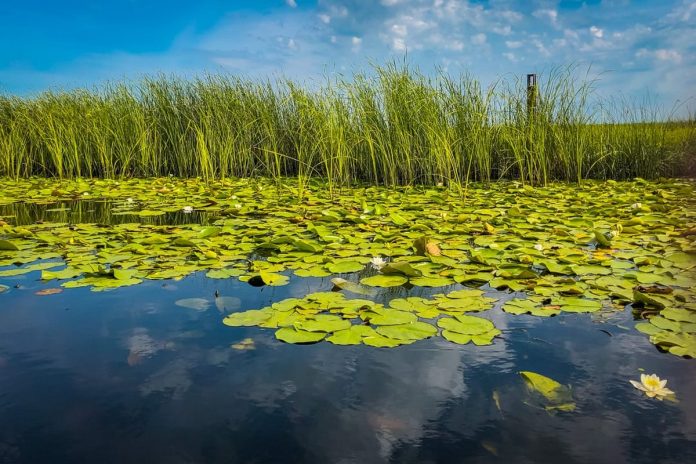The authorization of the first slow trail, dedicated to non-powered boats, in the Danube Delta is one of the successful projects carried out in 2024 by the Administration of the Danube Delta Biosphere Reserve (ARBDD), with Bogdan Bulete, the governor of the Reserve, maintaining that next year all tourist trails in the Delta will be reconfigured.
The first „green” trail in the Reserve was made possible by a partnership with the Ivan Patzaichin – Mila 23 Association and aims to encourage nature-friendly tourism, the trail with a total length of about 40 kilometers starting from the suburb of Tudor Vladimirescu and ending at the Ivan Patzaichin Museum in the village of Mila 23, Crisan commune, the Danube Delta.
„The ARBDD has managed to approve the first slow trail in the reserve, to encourage this type of tourist activity, to give tourists the possibility to enjoy a night in nature through several overnight stops, something that is very important to give a boost to this activity in the Delta, under well established conditions. Next year, we will start implementing the project financed under the National Recovery and Resilience Plan (PNRR) aimed at reconfiguring the tourist trails in the Delta and there will be many pieces of news when this project is finalized,” Danube Delta Biosphere Reserve governor Bulete told AGERPRES.
He also said that the feasibility study and the technical project for the reconfiguration of tourism activities in the reserve are currently being prepared.
„The number of trails will be in the double digits and you will see a substantial change in the way tourism is done. There will be an academy that will teach tourist guides what the trails in the Delta are all about, and these corsairs [fast boats speeding in the Delta, editor’s note] will undergo the authorization of the ARBDD,” the governor of the Reserve said.
Among this year’s successful initiatives, governor Bulete recalled the phasing of the projects for the unclogging of about 150 kilometers of canals, financed through European funds with about 226 million RON, started about four years ago, which constitute the biggest ecological reconstruction work in recent years.
AGERPRES




